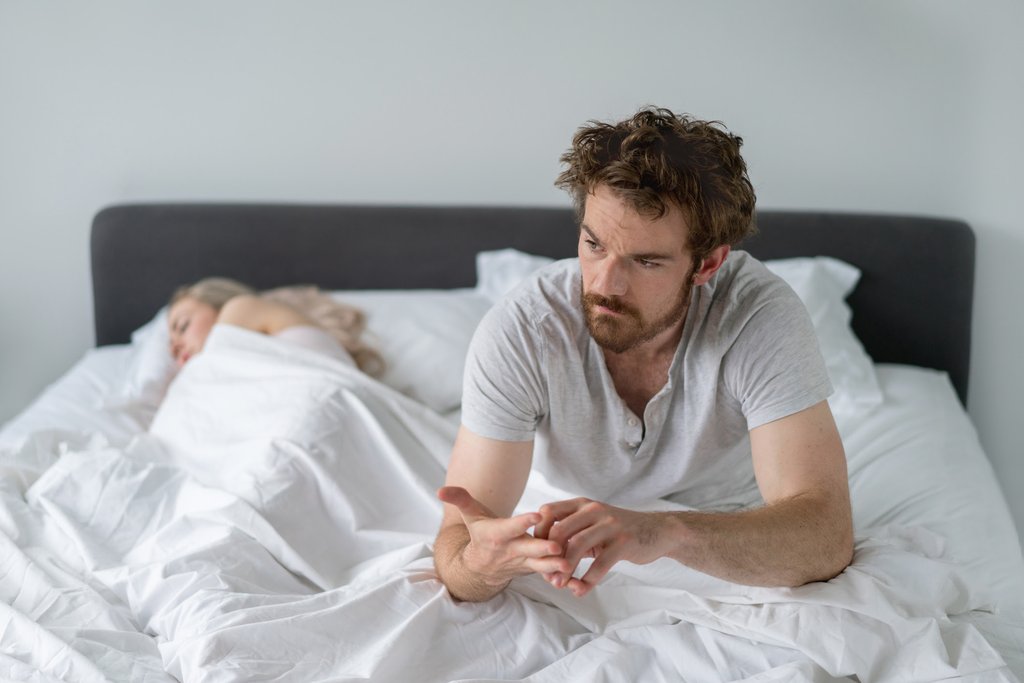Have you ever noticed your partner or even yourself twitching in your sleep? If so, you’re not alone—sleep twitching is a surprisingly common experience. While it can be puzzling, it’s usually harmless. Interestingly, men seem to twitch more than women, which raises the question: why do men twitch in their sleep?
In this article, we’ll explore what sleep twitching is, why it happens more frequently in men, and what you can do to reduce it for a more restful night.
What is Sleep Twitching?
Sleep twitching, also known as hypnic jerks or sleep starts, refers to sudden, involuntary muscle movements that occur when transitioning from wakefulness to sleep. These jerks usually happen in the early stages of sleep and are often described as feeling like falling, tripping, or jolting awake.
Why It Happens:
As your body shifts into deeper stages of sleep, your muscles begin to relax, and your brain misinterprets this as a sign of danger—triggering a reflexive muscle contraction. These spasms usually last a few seconds and are harmless unless they disrupt sleep frequently.
Why Do Men Twitch More? Exploring the Gender Difference
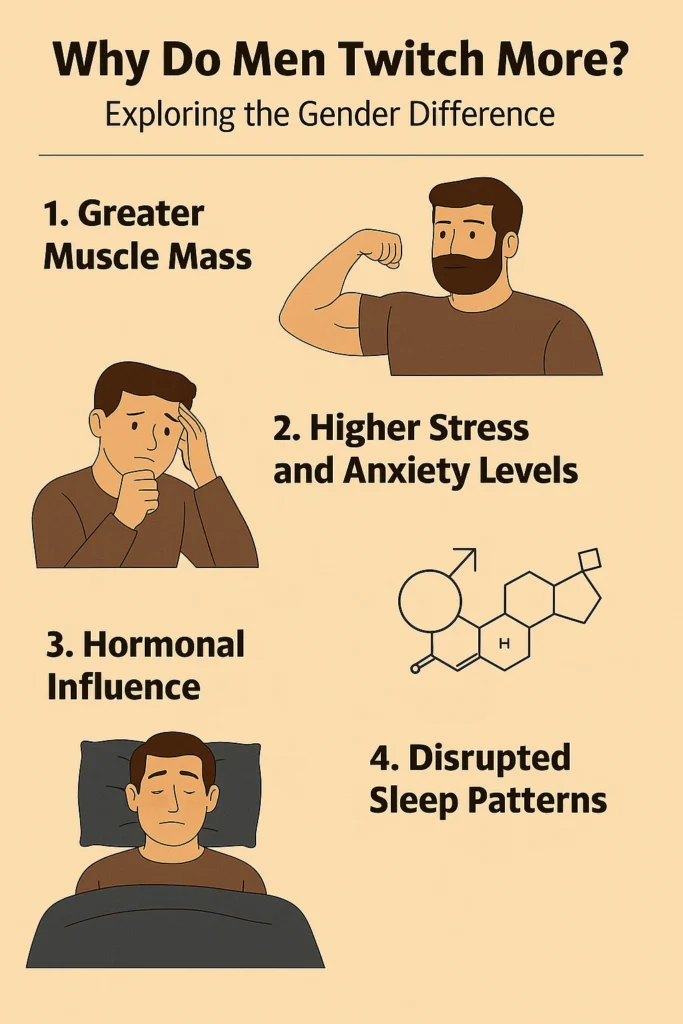
Research suggests that men may experience sleep twitching more often than women. Here are some potential reasons why:
1. Greater Muscle Mass
Men typically have more muscle mass, which results in more noticeable muscle contractions during sleep. As muscles relax, the jerks may feel stronger or more frequent.
2. Higher Stress and Anxiety Levels
Stress is a significant trigger for hypnic jerks. Men are often exposed to higher levels of psychological stress, which may contribute to more frequent sleep twitching.
3. Hormonal Influence
Testosterone, the primary male hormone, has been linked to muscle activity and spasms, potentially increasing the frequency of sleep jerks in men.
4. Disrupted Sleep Patterns
Men are more likely to engage in behaviors that negatively impact sleep—such as staying up late, consuming alcohol, or using electronic devices before bed. These factors can interfere with the natural sleep cycle, increasing the likelihood of twitching.
Should Men Be Concerned About Sleep Twitching?
In most cases, sleep twitching is completely normal and doesn’t require treatment. However, in some situations, it can signal an underlying issue.
Normal Sleep Physiology
Mild, occasional twitching is part of normal sleep behavior and typically doesn’t pose any health risk.
Possible Underlying Conditions
Frequent or intense twitching could indicate a sleep disorder, such as:
- Restless Leg Syndrome (RLS)
- Sleep Apnea
- Periodic Limb Movement Disorder (PLMD)
If twitching is disrupting sleep or accompanied by other symptoms like discomfort, pain, or breathing problems, a medical consultation is recommended.
Personalized Medical Evaluation
If your sleep twitching causes distress or occurs alongside excessive daytime fatigue, it’s best to consult a healthcare provider. A doctor may recommend further evaluation, lifestyle changes, or sleep studies to identify the root cause.
Types of Sleep Movements
Not all nighttime movements are created equal. If you’ve ever wondered why do men twitch in their sleep or why does my boyfriend twitch when sleeping, understanding the various types of sleep-related movements can help clarify what’s happening.
Here are the most common types:
Hypnic Jerks
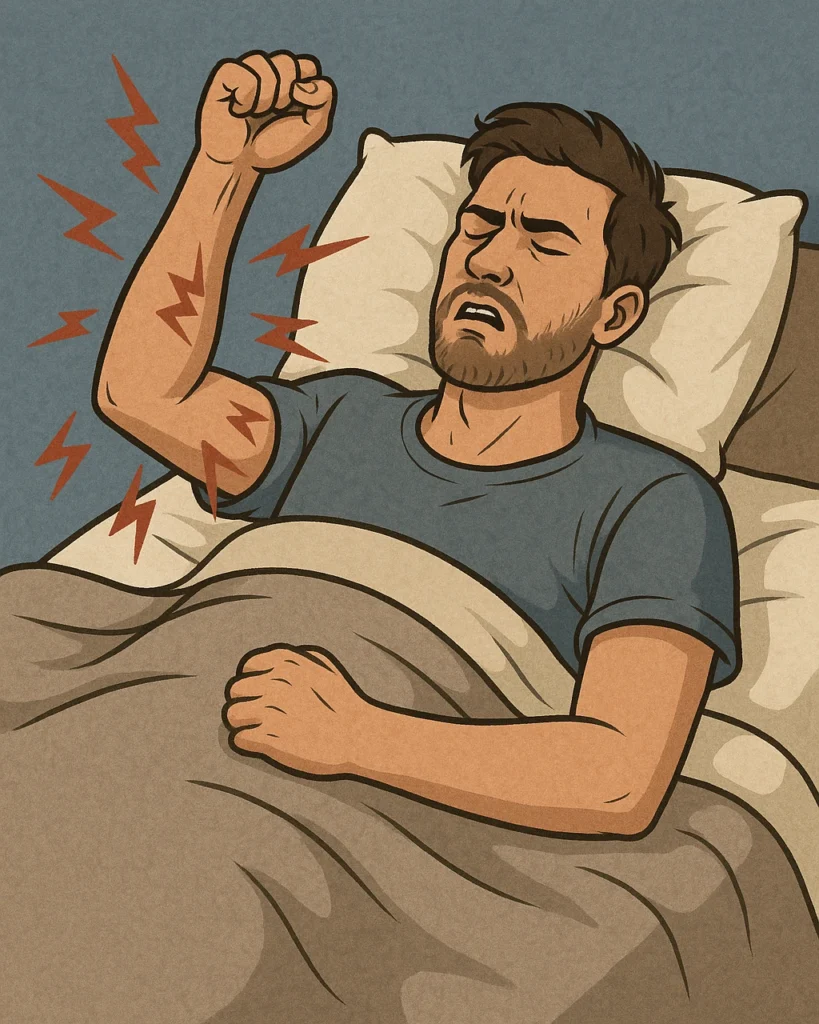
Also known as sleep starts, these are sudden, involuntary muscle twitches that typically occur during the transition from wakefulness to sleep. Hypnic jerks are harmless and often triggered by stress, caffeine, or exhaustion. They’re one of the most common reasons why guys twitch when they sleep.
PLMD (Periodic Limb Movement Disorder)
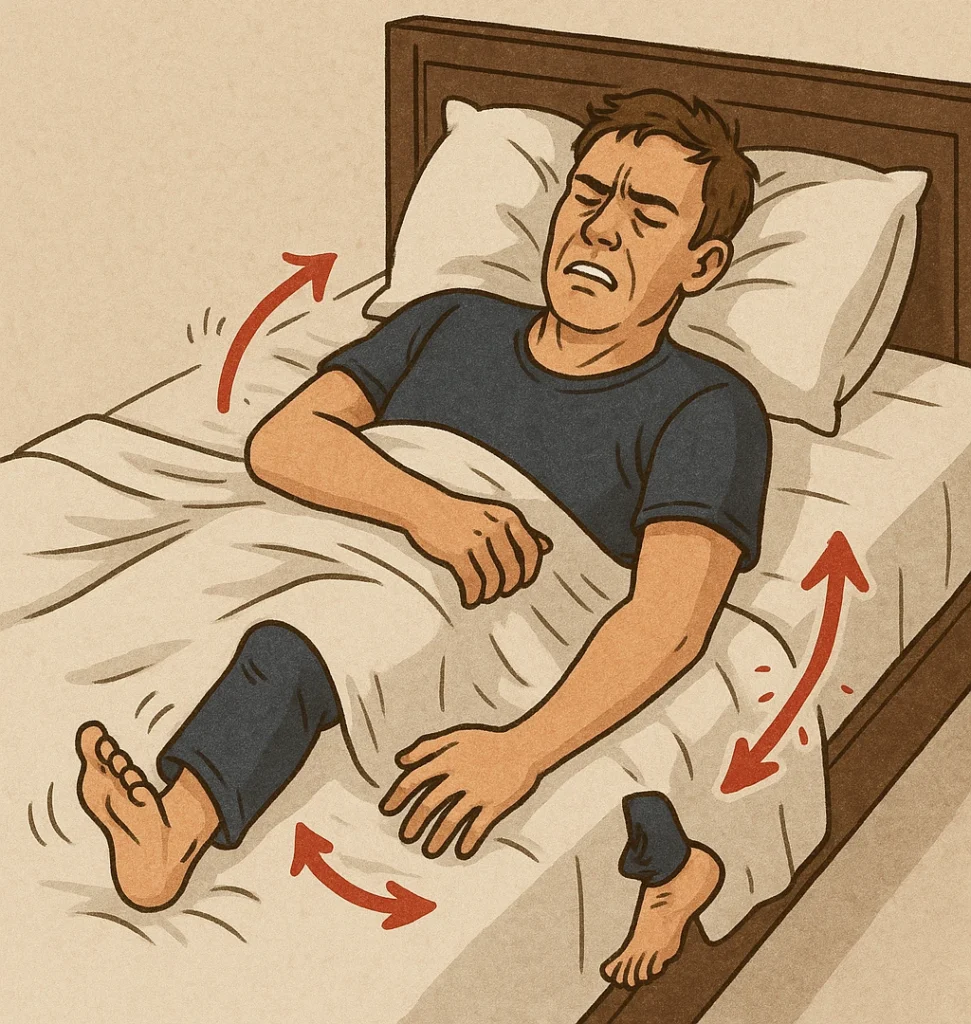
PLMD is characterized by repetitive, rhythmic movements—usually in the legs—that occur every 20 to 40 seconds during non-REM sleep. While the person may not be aware of it, PLMD can cause frequent awakenings and is a leading cause of why men twitch so much in their sleep.
RLS (Restless Leg Syndrome)
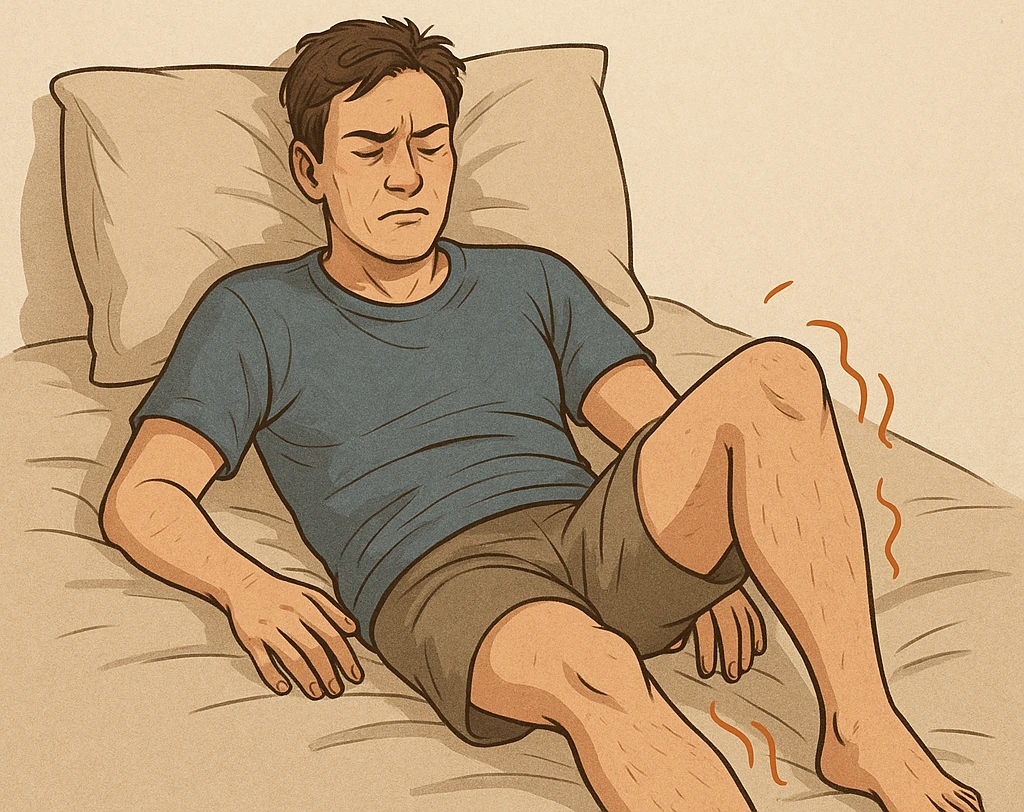
This neurological condition causes an uncontrollable urge to move the legs due to discomfort, often described as tingling, crawling, or itching. Movements tend to happen during rest or inactivity, especially at night. It’s a common reason why males twitch in their sleep, especially before sleep onset.
REM Behavior Disorder (RBD)
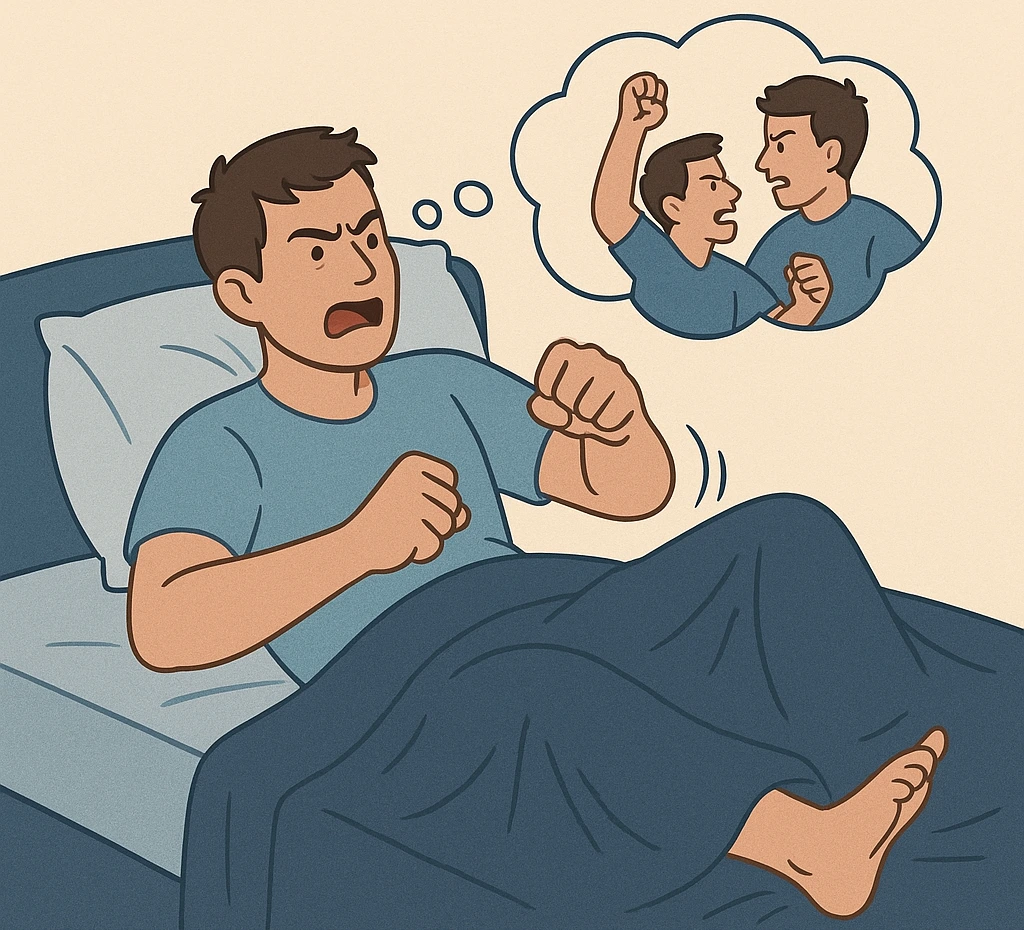
REM sleep is when vivid dreaming occurs. In RBD, the brain fails to paralyze the body during dreams, leading to physical movements, talking, or even shouting. This condition is more serious and may be linked with neurodegenerative diseases like Parkinson’s. It may explain why men flinch in their sleep or act out their dreams violently.
Nocturnal Myoclonus
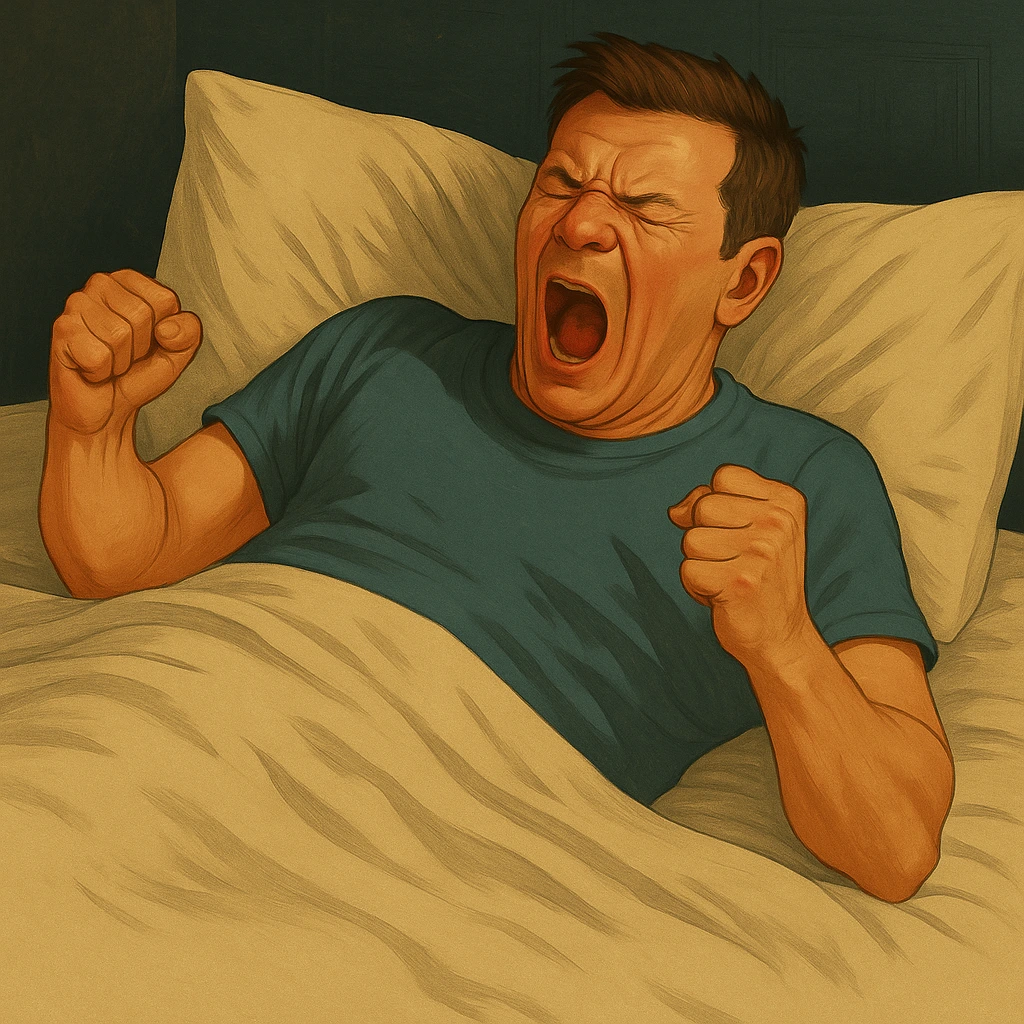
This refers to sudden muscle contractions that occur in groups during sleep and can resemble jerking or kicking. These movements may affect sleep quality and are sometimes confused with seizures.
Understanding these distinctions is key to determining whether why do guys twitch in their sleep is due to something minor or part of a more serious sleep disorder.
Can Twitching Be a Sign of a Sleep Disorder?
For most people, occasional twitching is a normal part of falling asleep. But in some cases, it can be a sign of an underlying sleep or neurological issue.
You should pay close attention if you notice:
- Frequent awakenings from twitching
- Loud vocalizations or talking during sleep
- Sudden limb movements that are aggressive or violent
- Sleepwalking or acting out dreams
These symptoms might point to the following conditions:
Sleep Myoclonus
This condition involves involuntary muscle spasms during sleep, often in rapid succession. It can interfere with sleep and sometimes requires medical attention.
Nocturnal Seizures
Unlike typical sleep twitches, seizures during sleep can be intense and prolonged. They may involve full-body jerks or repetitive movements and are often accompanied by confusion or fatigue upon waking.
REM Sleep Behavior Disorder
As mentioned earlier, RBD causes people to physically act out dreams. This condition is more common in older men and is considered a warning sign of neurological disorders like Parkinson’s disease.
If you’ve been asking, “Why does my boyfriend twitch so much when he sleeps?” or “Why do guys jerk when falling asleep?”—and it’s affecting his quality of life—consulting a sleep specialist is highly recommended.
How Twitching Affects Sleep Quality
Even if twitching seems harmless, it can negatively impact sleep in the following ways:
1. Interrupts Deep Sleep Stages
Frequent or intense twitching can interfere with the progression into deep sleep (Stage 3 and REM), preventing the brain and body from achieving restorative rest. This can lead to feeling groggy or unfocused the next day.
2. Causes Sleep Fragmentation
Small awakenings from jerks or leg kicks—even if not fully remembered—can accumulate and result in a restless night. Over time, this can lead to sleep debt and decreased mental clarity.
3. Disrupts Your Partner’s Sleep
If your partner shakes in their sleep or jerks suddenly, it can disrupt your own sleep, especially if the movements are strong or frequent. This is a common issue in couples and a real reason why people ask why do guys twitch so much.
4. Leads to Fatigue and Irritability
Without adequate deep sleep, the body doesn’t repair itself properly. Chronic interruptions—whether from PLMD, RLS, or stress-induced twitching—can lead to mood swings, irritability, and weakened immune function.
If you’re dealing with boyfriend twitches while sleeping or are seeing signs of excessive twitching in sleep, it’s worth taking steps to improve sleep hygiene and seeking professional advice when needed.
Practical Solutions to Reduce Sleep Twitching
If sleep twitching is interfering with your rest, try these natural remedies and lifestyle changes to reduce its frequency:
1. Improve Sleep Hygiene
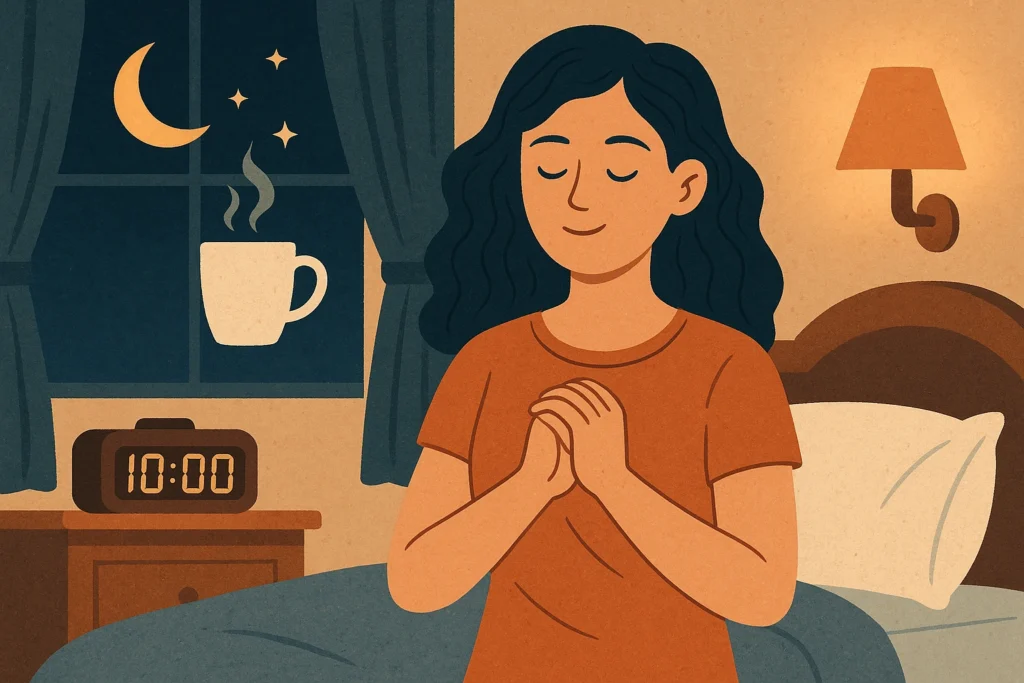
Create a consistent bedtime routine and go to bed at the same time every night. Avoid stimulants like caffeine and alcohol before bedtime to enhance sleep quality.
2. Practice Stress Management
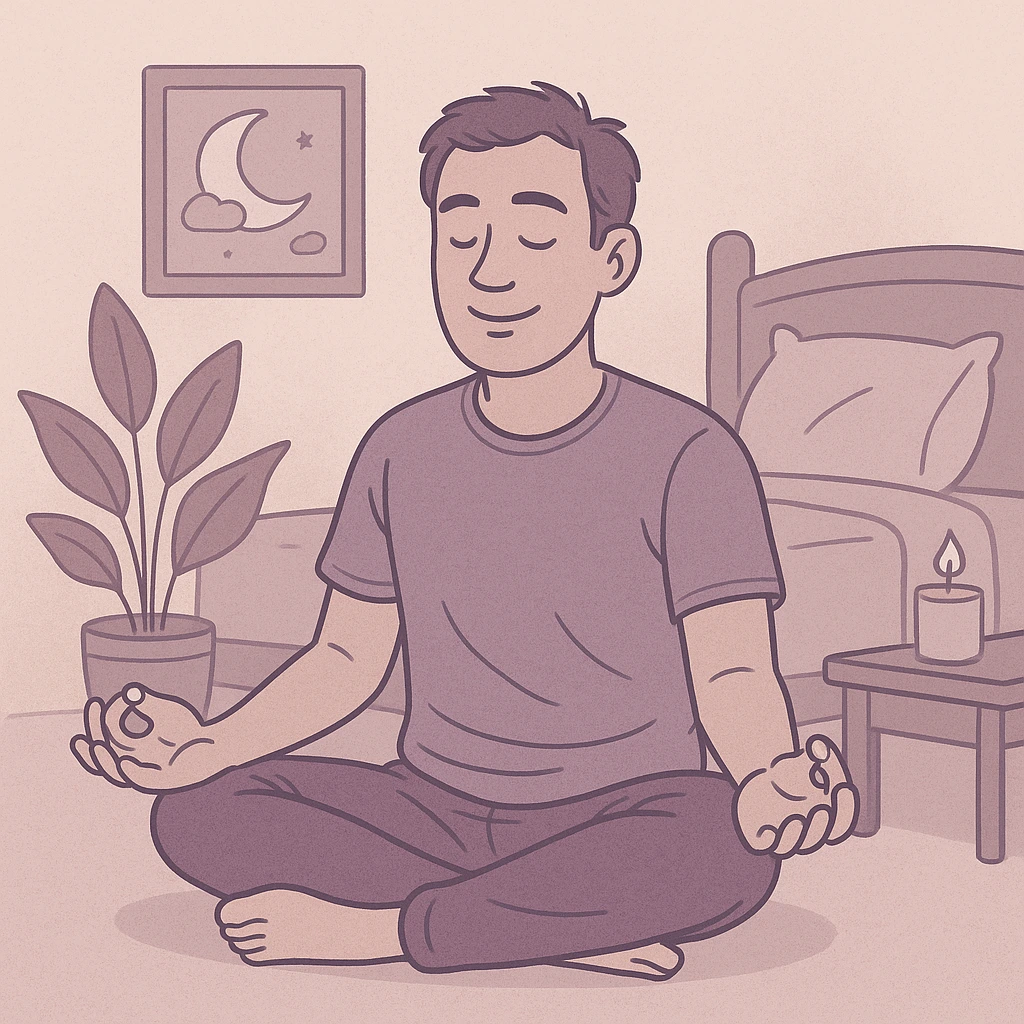
Reduce anxiety by incorporating relaxation techniques into your daily routine:
- Deep breathing exercises
- Meditation
- Progressive muscle relaxation
These can help calm your nervous system and reduce muscle tension before sleep.
3. Exercise Regularly (But Not Right Before Bed)
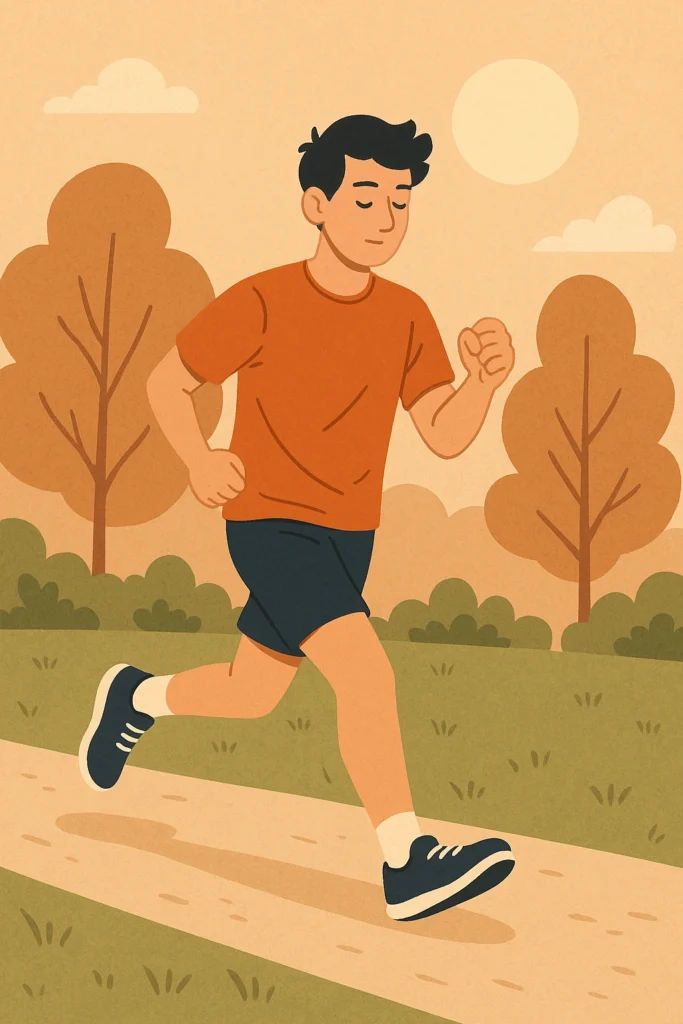
Engage in moderate physical activity during the day to improve sleep quality. However, avoid vigorous workouts right before bedtime, as they can stimulate your body and increase the likelihood of twitching.
Frequently Asked Questions (FAQs)
Conclusion:
So, why do men twitch in their sleep? It all boils down to a combination of biological, hormonal, and lifestyle-related factors. Although sleep twitching is generally harmless, it’s essential to monitor its frequency and impact on your sleep.
If your twitching becomes frequent, intense, or starts to disrupt your rest, consult a healthcare professional to rule out any underlying conditions. Meanwhile, practicing good sleep hygiene, managing stress, and maintaining a healthy lifestyle can significantly reduce nighttime twitching and improve your overall sleep quality.
Disclaimer: The content on Wellness Derive is for informational purposes only and not a substitute for professional medical advice, diagnosis, or treatment. Always consult a healthcare provider for medical concerns.

